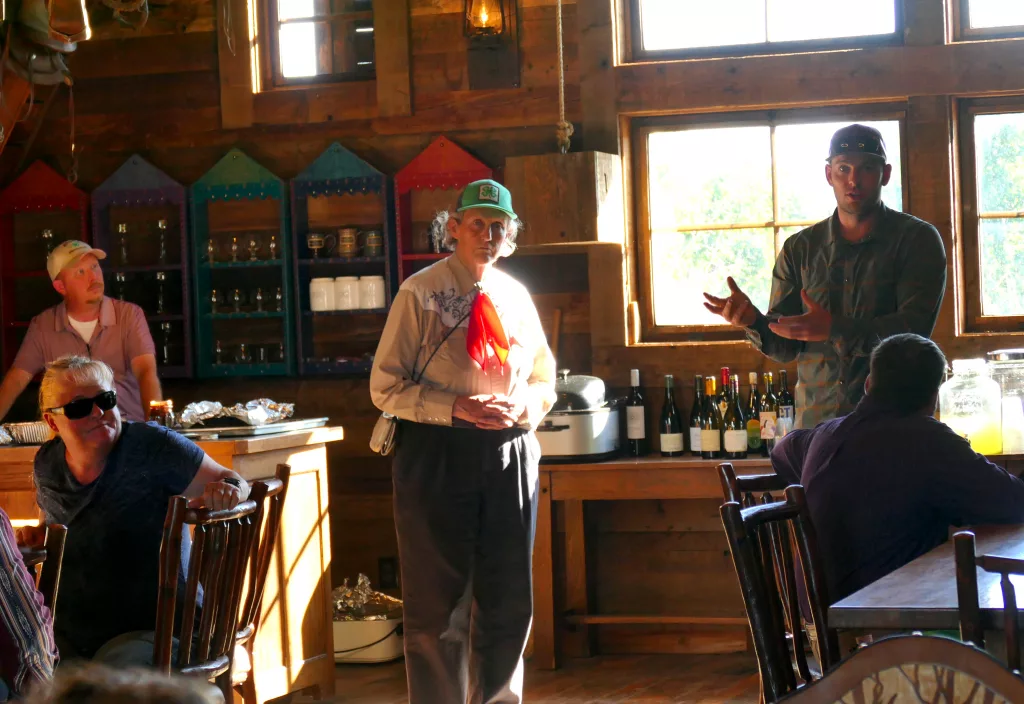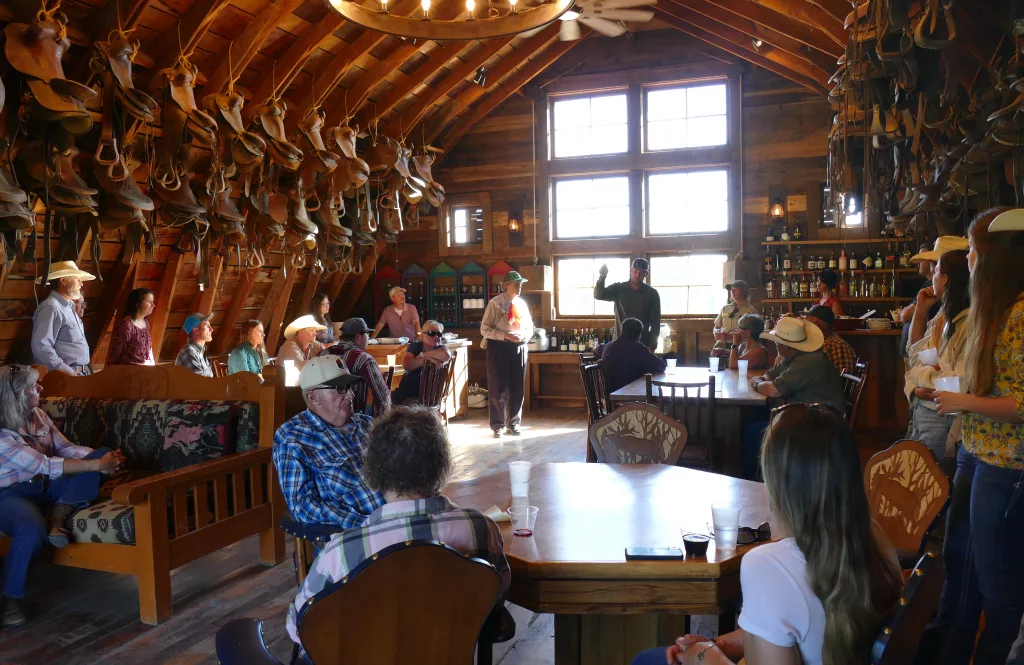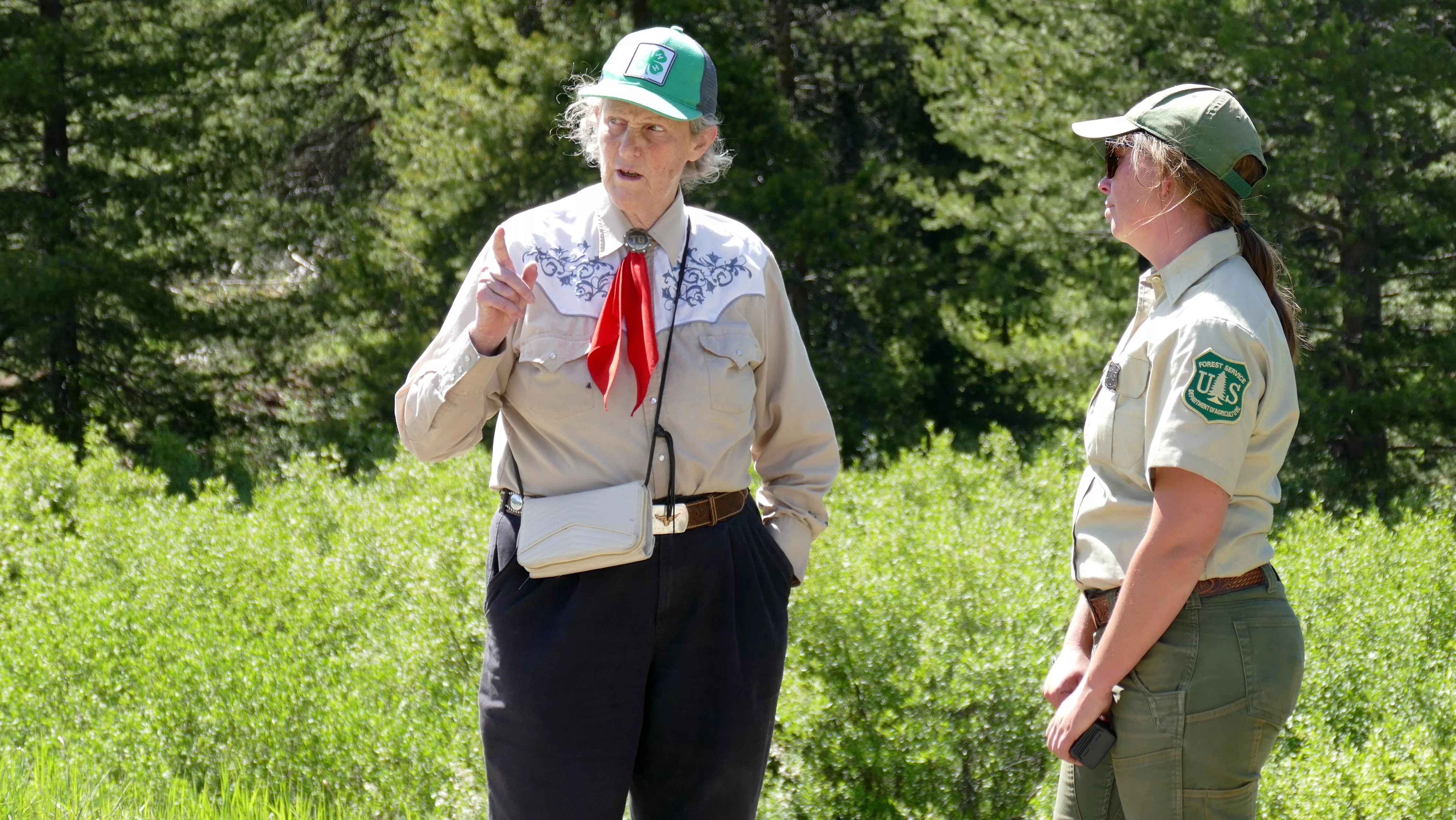
By Shannon Lukens.
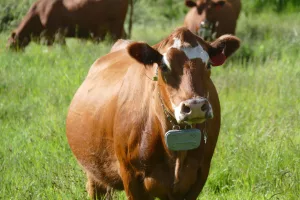
Dr. Temple Grandin spent Sunday in North Routt County, learning about virtual fencing for cattle. The technology from Merck Animal Health is called Vence, where cattle are collared with online GPS tracking. The herd manager can set up virtual fencing lines to manage cattle movement and facilitate rotational grazing using a computer, tablet or smartphone connected to a base station. Vence’s virtual fencing technology can reduce the need for fencing to subdivide pastures and allows herd managers to manage their cattle and grass inventory, while reducing costs of labor and fencing materials. And it’s better for the land.
“You’ve got big ranches here. It would be really interesting to see how the collars work, how the base stations work. I think that might be a really great option in the future, to make rotational grazing so much easier.”
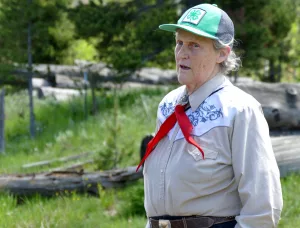
Dr. Grandin is an animal behaviorist and professor of Animal Science at Colorado State University. Grandin is world renowned, featured on shows like 20/20, and 60 Minutes. There has been a movie made about her called Temple Grandin and a BBC Special called, “The Woman Who Thinks like a Cow.” She has written more than 60 scientific papers on animal behavior and is a prominent proponent for the humane treatment of livestock for slaughter. She was out with the U.S. Forest Service Sunday visiting North Routt County ranches that are testing out the virtual fencing.
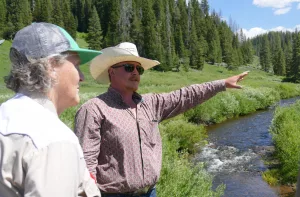
One of those ranches is the Ely Ranch, where they’ve had problems when cattle get down to the bottom of the King Solomon Falls allotment and then they can’t get out. JP ELY is a 5th generation Routt County rancher.
“We’ve had issues with our cattle, moving down the crick in the fall time, and trying to go home, and they end up in a place where they can’t get out because winter hits, and snow falls. And then King Solomon Falls, at the bottom of it, they can’t get out. With this VENCE, I think we can now put something in place where we can keep those animals to still be able to get water but not end up in a position where it is dangerous for them and dangerous for the riders trying to get them out of there.”
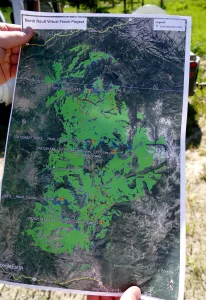
Ely has about 230 head of cattle that are collared with the Vence technology.
“I think it’s going to be so beneficial to be able to manage these cattle and not only be able to keep them out of certain areas but also be able to see where they’re at, and be able to go up in the fall time and know exactly where they’re sitting, and come down with a whole group of cattle, and put them at home and be ready for the fall shipping time. I think it’s got some issues that need fixed but it is invaluable, especially as the technology is getting better and better.”
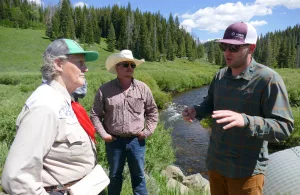
John Abizaid is with Merck Animal Health and the Vence project. He was also on the tour.
“I think that the topography in Northwest Colorado is difficult to maintain and build fencing and keep animals out of sensitive areas like riparian zones. What virtual fencing allows is a different type of management in being able to more adaptively manage what your animals are doing on the landscape based on what you’re seeing. It’s very expensive to do that with traditional fence and with traditional labor so we’re hoping to be able to do more with less.”
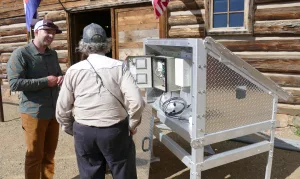
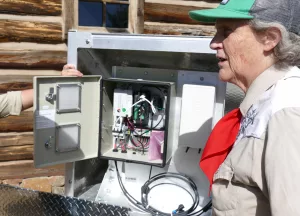
Here are the costs for the Vence Virtual Fencing.
- $10K for the Self-install Base Station
- $12.5K for the Vence Assisted Install Base Station
- $40 per collar per year for the Annual Subscription Fee, which includes software, customer support and collar replacement if needed
- $10 per unit for Collar Batteriess which last for six to nine months
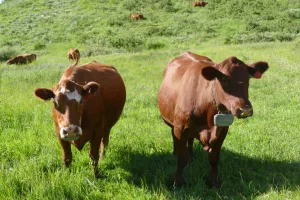
The Vence collars set to automatically come off under 600 pounds of pressured force. They have about 40,000 head of cattle collared in 14 states.
From Merck Animal Health: “Rotational grazing attempts to prevent over-grazing by mimicking the natural movement of herds across land. After grazing in pasture, cattle are then moved to new pasture to allow for fertilization and subsequent grass growth in the area they just occupied. Health soils and optimal grasslands management are recognized as playing an increasingly important role in sustainable cattle production.”
The tour of Northwest Colorado was hosted by the Routt County CSU Extension office.
